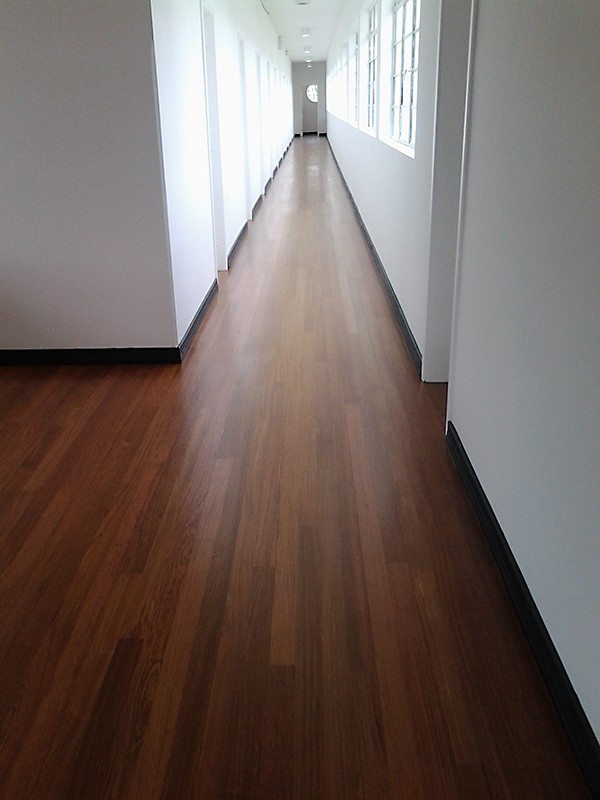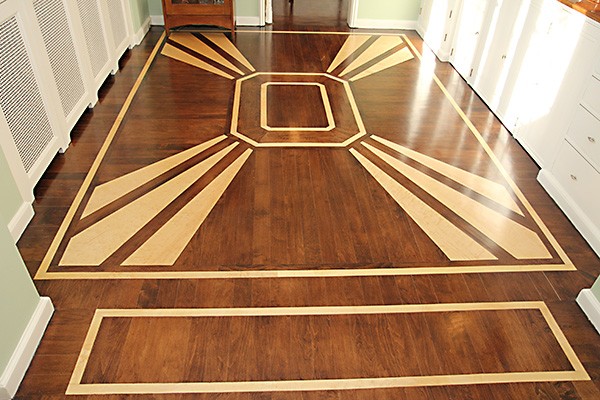Table of Contents
ToggleUnderstanding the Oil, Water, and Natural Oil Finish Options
While some hardwood comes pre-finished, other hardwood allows you to choose which finish will be applied to the floor. For most folks it will be the final step in creating the perfect hardwood flooring space.
There are three categories of finish: oil-based polyurethane, water-based polyurethane, and natural oil.
Three Hardwood Floor Finishes
Both water-based and oil-based polyurethane finishes form a protective layer on the surface of the floor that not only protects the wood from normal wear and tear, but provides it with a beautiful shine. Aesthetically, the major difference between water-based and oil-based polyurethane is that oil-based polyurethane also has the capacity to stain and darken the wood.
For those that want to preserve the wood’s natural color, water-based polyurethane is the smarter choice. Those that want to darken and stain the wood a bit will prefer oil-based polyurethane. Depending on the wood, the placement, and your aesthetic needs, either option is perfectly acceptable.
Water-based polyurethane:
- Is more durable. Water-based has better scratch anc chemical resistance
- Dries faster. The cure time is shorter so you can apply more coats in fewer days.
- Costs more. Water-based is going to be a bit more expensive.
- Does not change the color of the wood. Water-based polyurethane goes on clear and stays clear.
- Does not smell funky. The majority are certified Low Volatile Organic Compounds (VOC)

Oil-based polyurethane deepens the color of the hardwood and over time will darken slowly. Oil-based polyurethane:
- Is less expensive. Oil-based will not hit your pocketbook quite as hard as water-based.
- Easier to apply. The application process requires less preparation.
- Dries slower. It cures slower, so it will take more time to coat.
- Is a bit stinky. No lie. The strong odor can last for days.

Natural oils are the last option at your disposal. One thing to consider is that natural oils don’t dry and cure to the wood surface, the soak into the wood itself and harden. This results in a duller, low-sheen matte finish that allows the grain of the wood to retain its texture. If the grain pattern of your wood is important to you, natural oils may be the way to go. It’s going to look more rustic and old school, the way you picture a hardwood floor looking when you imagine it. While natural oils don’t change the coloring of the floor, they can be used in combination with a stain.
Stay tuned to learn more about this topic.
Learn more. Call T&G Flooring for a free design consultation. We offer top-notch hardwood floors in Denver and Evergreen. Let us help you make your home or business a showplace!


